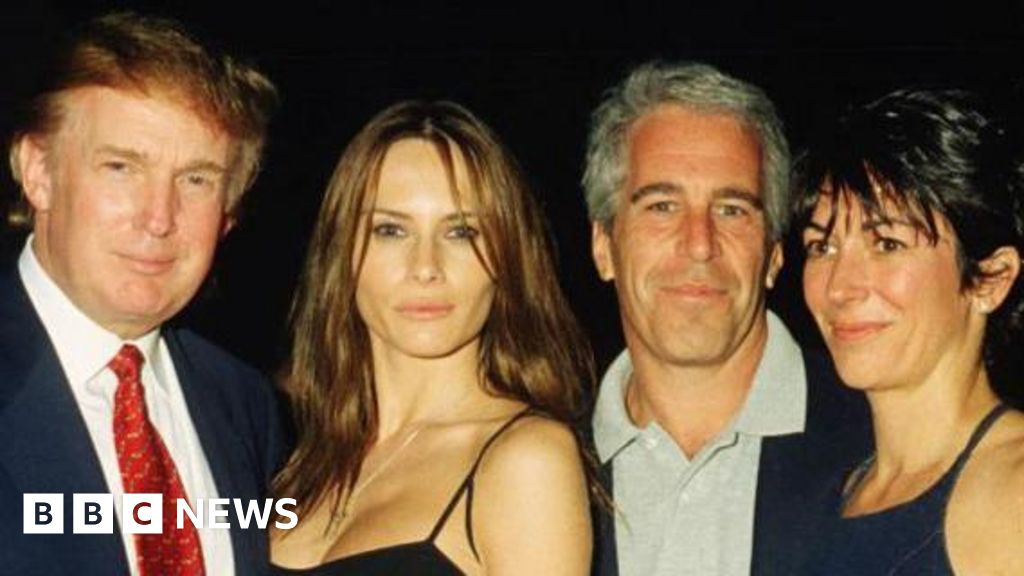The Ongoing Saga of Jeffrey Epstein: Conspiracies, Politics, and Public Sentiment
When Jack Posobiec stepped into the Department of Justice in Washington, D.C., last February, he expected to uncover vital truths about Jeffrey Epstein, the notorious financier whose life and mysterious death have become entwined with conspiracy theories. However, the information he and his fellow supporters received was largely a rehash of previously known material. This revelation left many, including Posobiec, frustrated and questioning the government’s handling of the Epstein case.
Rumors and Reality
The frustration echoed in social media posts where Posobiec lamented the lack of new information and the "utter mismanagement" surrounding Epstein’s complex narrative. His remarks reflect a broader sentiment among the MAGA base, which has long been invested in the conspiracy theories that have dogged former President Donald Trump since his initial foray into politics—a decade marked by questions surrounding Epstein’s connections to powerful figures across the political spectrum.
The Underlying Conspiracy Narrative
Epstein’s death by suicide in a New York prison cell while awaiting trial on sex trafficking charges only fueled conspiracy theories about his connections to various high-profile individuals. Posobiec, known for his past promotion of the Pizzagate conspiracy theory, suggests that the MAGA base views the Epstein case as emblematic of a deeper corruption within the so-called "deep state." For many, it’s less about Epstein himself and more about the perception that he was part of a shadowy network controlling government and societal institutions.
The Evolving Conspiratorial Landscape
Throughout his political career, Trump has flirted with conspiracy narratives. He claimed during a previous election campaign that he would "have no problem" releasing Epstein-related documents, and agreed he would declassify files related to the case. This populist rhetoric resonated with a segment of his followers, causing a ripple effect in conspiracy communities. The Epstein narrative quickly merged with other conspiracy theories like QAnon, which alleges that elite figures are involved in a global child sex trafficking ring.
Mike Rothschild, an expert on conspiracy theories, underscores how Epstein was positioned within this complicated web of narratives: he became a major character in discussions of a supposed "paedo elite" long before his death. The fervor for new revelations about Epstein intensified in the years following his demise, intertwining with various conspiracy theories covering multiple societal woes.
Reactions from Officials
However, the tides began to turn after recent DOJ meetings and subsequent announcements from officials like FBI Director Kash Patel. They began to temper expectations regarding new revelations about Epstein, stating definitively that there was no evidence of a client list and reaffirming the ruling on his cause of death. This recoil from anticipated revelations left many conspiracy theorists feeling deflated, even as Trump attempted to shift focus by labeling the Epstein case as "sordid, but boring."
A Divided Base
Despite Trump’s attempts to quell the fervor, a faction of his supporters remains deeply invested in uncovering more details about Epstein’s life and his connections to political elites, including figures like Bill Clinton. The demand for transparency has only intensified, especially among those who still feel passionate about the Epstein narrative.
Some MAGA figures even argue that Epstein’s connections have implications that stretch beyond individual actions, suggesting a wider societal conspiracy fueled by governmental incompetence or malice. This thread has drawn individuals like Tucker Carlson into the fray, where speculation about Epstein’s alleged ties to foreign entities, including Israeli security services, has arisen, often veering into uncomfortable territory.
The Ripple Effects on Trump’s Leadership
As the pressure from the MAGA base mounts, Trump finds himself at a crossroads. While promising to bring transparency, he must navigate the complicated landscape of his own supporters. Many expect him to satisfy their thirst for revelations that may or may not exist, leading to divisions within his fan base.
Rich Logis, a former staunch Trump supporter, illustrates this divide. He indicates that some supporters feel "confused and stunned" by the apparent dismissal of their interests. Logis emphasizes the need for Trump to align with the expectations of his followers, who are anxious for the revelation of any concealed truths related to Epstein.
Influencers and the Quest for Answers
Among Trump’s supporters, a subculture of influential figures amplifies this quest for more information about Epstein. They leverage social media platforms and provocative narratives, propelling the conspiracy discourse further into mainstream dialogues. Yet, as these influencers continue to grapple with unanswered questions, frustration simmers beneath the surface.
While some may hesitate to directly confront Trump over his handling of the Epstein case, they understand the consequences this could have on their standing and support within the broader Republican framework. The implications of their frustrations may not be solely directed at Trump, possibly impacting the Republican Party as a whole.
Conclusions Unfolding
As the complexities surrounding Epstein’s life and death continue to evolve, it’s clear that the intersection of politics, conspiracy, and public sentiment is not easily navigable. The saga serves as a backdrop to ongoing dialogues about power, accountability, and the willingness of public figures to confront uncomfortable truths. In a digital age defined by rapid information exchange, the quest for answers remains a stirring narrative that captivates and divides those watching closely.


